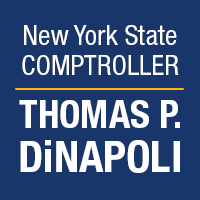Assistance fell short for vulnerable adults in New York City because Adult Protective Services (APS) experienced staff shortages and high caseloads, according to an audit by New York State Comptroller Thomas P. DiNapoli. The audit found that inadequate state oversight led to missed visits and delayed service plans, leaving some adults with physical or mental challenges without timely services.
“Our audit found that staff shortages and high caseloads strained New York City’s Adult Protective Services,” DiNapoli said. “Case files showed missed visits, delayed eligibility decisions and late service plans. The Office of Children and Family Services needs to strengthen its oversight, so caseworkers have the support they need to help the adults who depend on these services.”
APS is run by the city’s Human Resources Administration (HRA) and overseen by the state Office of Children and Family Services (OCFS). APS caseworkers help adults with physical or mental challenges who cannot care for themselves or who may be at risk of abuse, neglect, financial exploitation or other harm and have no one who is willing and able to help them. Services include arranging home care, helping manage finances, finding safe housing and connecting clients with medical or social supports. Caseworkers are based in HRA field offices and contracted nonprofits across the city and often meet clients in their homes to assess their needs. The audit reviewed APS referrals and case management between April 2019 and October 2024.
Case Management Problems
Auditors reviewed 179 referrals for 80 clients between April 2019 and August 2023 and found late visits, delayed service plans and missing eligibility letters, progress notes and other documentation. In seven cases, APS may have closed files before fully addressing the client’s needs. These lapses meant some adults may have waited longer for help or went without needed services, leaving them at greater risk of harm.
Staffing Shortages and High Caseloads
Auditors found that staff shortages and high turnover likely strained APS operations. Caseworkers in HRA field offices dropped 30% from 2019 to 2022, while supervisors declined 7%. By October 2024 staffing had returned to budgeted levels, but the high turnover resulted in less experienced and potentially overworked caseworkers, with about three-quarters having less than two years on the job.
Caseloads varied significantly among the three HRA offices. In some instances, some caseworkers had up to 90 cases, while others had much lower caseloads and a stated target of 25 to 30 cases. In a 2024 survey of HRA APS caseworkers and supervisors conducted by the audit team, nearly 60% of caseworkers responded that staffing was insufficient, and only 22% felt cases were being assigned in a manner that promotes the most efficient and effective service delivery. Both OCFS and HRA officials acknowledged that staffing has been a major struggle, during and since the pandemic.
Weak Oversight by OCFS
The audit also found that OCFS’s oversight did not adequately address these problems. OCFS reviews APS offices to check whether they are following requirements, and if performance is low, it can require a corrective plan. Between 2019 and 2024, eight of 11 reviews noted staffing problems and four led to corrective plans, but none required steps to fix staffing or case management issues. Auditors also found cases that went unassigned for a period of time and services that were delayed, but OCFS did not flag these problems or require them to be fixed.
Recommendations
DiNapoli’s audit recommended that OCFS:
Develop a process to monitor vacancies and turnover at APS providers to determine if compensating efforts, such as conducting more frequent reviews or additional training and technical assistance, are necessary to improve case management;Develop basic standards or guidance for caseloads, and conduct periodic studies to evaluate manageable caseload ratios and determine effective case management practices; andStrengthen oversight of staffing and case management practices, including assessing deficiencies during reviews and issuing performance improvement plans to address deficiencies.
Response
Although OCFS officials disagreed with certain aspects of the report, they generally agreed with the recommendations. OCFS said staffing has been a challenge since the pandemic but noted it is working with HRA on hiring and retention, including using retention bonuses, regular meetings, and new technology to recruit staff. The agency said it would develop best practice guidance for case ratios, would utilize performance improvement plans to address problems identified during case reviews and emphasized that services were ultimately provided in some cases, though not always on time. The agency’s full response is available in the audit.
Other Related Work
New York City Agency Services Update
New York City Agency Services Monitoring Tool
Department of Health Oversight of Adult Care Facilities
Office of Children and Family Services Oversight of Adult Protective Services Programs
New Yorkers in Need: Homelessness in New York State

